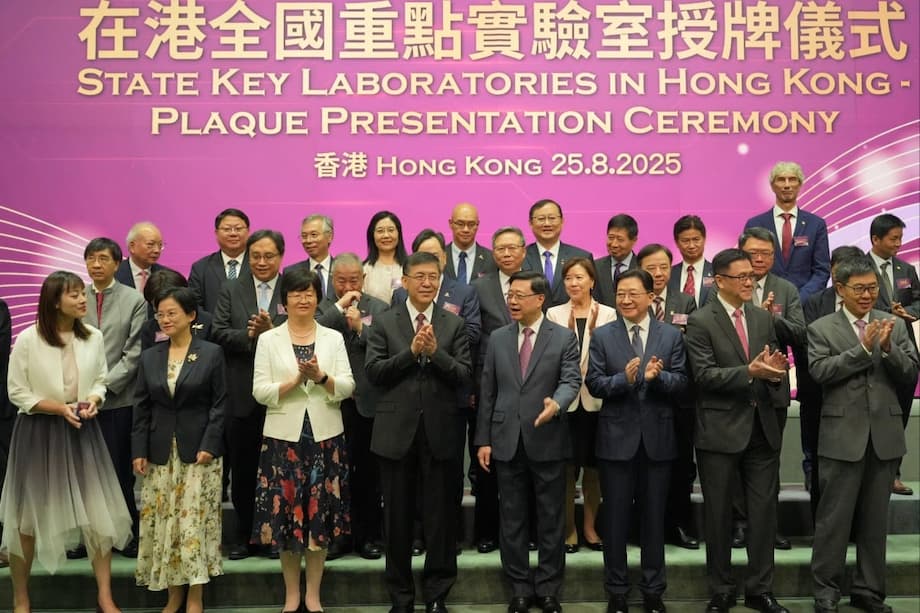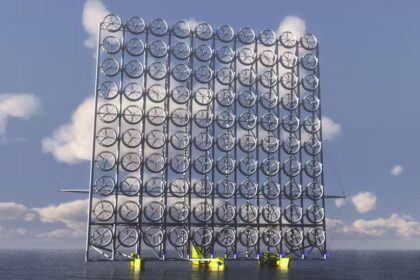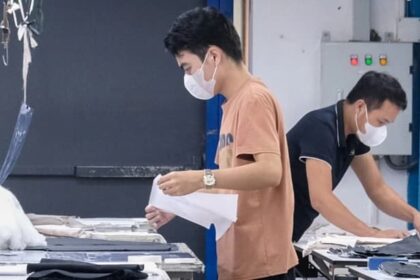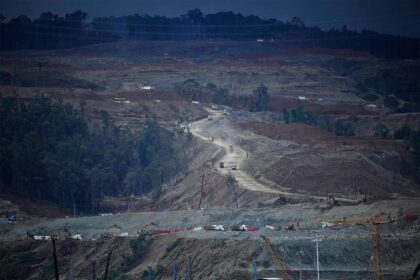Hong Kong’s State Labs Restructured: A New Era for China’s Tech Ambitions
Hong Kong’s scientific landscape is undergoing a profound transformation. Once characterized by a sprawling network of state-backed research laboratories with diverse and sometimes diffuse missions, the city’s research infrastructure has now been streamlined, repurposed, and tightly aligned with Beijing’s strategic technology ambitions. This overhaul is not just a local development—it is emblematic of China’s nationwide push to convert its State Key Laboratories (SKLs) into mission-driven engines of innovation, designed to secure the country’s place at the forefront of global science and technology.
- Hong Kong’s State Labs Restructured: A New Era for China’s Tech Ambitions
- Why Restructure? The National Strategy Behind the Overhaul
- Inside Hong Kong’s New State Key Laboratories
- Official Perspectives: Confidence, Collaboration, and Global Ambitions
- From Academic Freedom to Strategic Alignment: What’s Changed?
- Funding, Collaboration, and the Role of Universities
- Broader Implications: Hong Kong’s Place in China’s Innovation Ecosystem
- Regional Context: Macau’s Parallel Restructuring
- Challenges and Opportunities Ahead
- In Summary
In a landmark ceremony attended by China’s Minister of Science and Technology, Yin Hejun, Hong Kong’s revamped labs were officially recognized as part of the national innovation system. The move signals a new chapter for the city, positioning it as a critical node in China’s quest for scientific supremacy and technological self-reliance.
Why Restructure? The National Strategy Behind the Overhaul
The restructuring of Hong Kong’s state labs is part of a broader national strategy initiated by the Ministry of Science and Technology (MOST) in 2022. The goal: to transform China’s extensive but sometimes inefficient system of SKLs from academically driven, siloed entities into lean, mission-oriented “tech war machines.” These labs are now tasked with advancing critical fields such as artificial intelligence, quantum technology, brain science, and climate resilience—areas deemed essential for China’s future competitiveness and security.
Historically, SKLs operated with considerable academic freedom, often pursuing loosely defined research agendas. However, as global technological competition has intensified—particularly with the United States—China’s leadership has recognized the need for a more coordinated, results-driven approach. President Xi Jinping has repeatedly emphasized the importance of overcoming technological bottlenecks and reducing reliance on foreign technologies, describing the country’s vulnerabilities as being “strangled by an opponent.”
In response, the new SKL doctrine emphasizes:
- Clear mandates: Each lab now has a specific mission aligned with national priorities.
- Centralized funding: Resources are allocated directly to support strategic objectives.
- Direct accountability: Labs are required to deliver measurable results and report progress to central authorities.
This shift is reflected in the approval of around 500 SKLs nationwide under the restructured program, with Hong Kong’s 15 labs now fully integrated into this system.
Inside Hong Kong’s New State Key Laboratories
The 15 newly designated SKLs in Hong Kong span a wide range of disciplines, from medicine and biology to quantum materials and environmental science. These labs are affiliated with the city’s leading universities, including the University of Hong Kong, the Chinese University of Hong Kong, City University of Hong Kong, Hong Kong Polytechnic University, and the Hong Kong University of Science and Technology (HKUST).
Each laboratory is set to receive annual funding of up to HK$20 million (about US$2.56 million) from the Hong Kong SAR government, in addition to matching resources from their host universities. This financial support is intended to boost research capabilities, attract top talent, and enable long-term planning.
Flagship Labs and Their Missions
Among the most prominent are:
- State Key Laboratory of Nervous System Disorders (HKUST): Formerly focused on molecular neuroscience, this lab now integrates interdisciplinary teams and artificial intelligence to tackle neurological diseases and develop new diagnostic and therapeutic technologies.
- State Key Laboratory of Displays and Opto-Electronics (HKUST): This lab is advancing next-generation optoelectronic technologies, including perovskite materials, quantum dot LEDs (QLEDs), augmented and extended reality (AR/XR), and flexible sensors.
- State Key Laboratory of Climate Resilience for Coastal Cities (Joint HKUST and PolyU): A new addition, this facility focuses on extreme weather prediction, disaster prevention, infrastructure resilience, and early warning systems—leveraging Hong Kong’s unique urban and coastal environment.
- Quantum Technology Laboratory (CUHK): This lab covers quantum sensing, precision measurement, nano-photonics, integrated photonics, quantum materials, and quantum information theory.
Other labs address infectious diseases, biomedical technology, and environmental sustainability, reflecting the breadth of Hong Kong’s research strengths and the diversity of China’s strategic needs.
Official Perspectives: Confidence, Collaboration, and Global Ambitions
The plaque presentation ceremony for the 15 SKLs was a high-profile event, attended by top officials from both Beijing and Hong Kong. Minister Yin Hejun described the operation of the labs as a “milestone event” in Hong Kong’s integration into the national innovation system, emphasizing the central government’s confidence in the city’s research capabilities and development potential.
“I hope the state key laboratories in Hong Kong will further bolster their mission positioning and focus on scientific challenges arising from national demands to seize the commanding heights in the global scientific and technological competition,”
Yin Hejun, Minister of Science and Technology, told lab directors at the ceremony.
Chief Executive John Lee Ka-chiu echoed these sentiments, highlighting Hong Kong’s role as a connector and hub for international talent. He expressed his vision for the labs to serve as vital platforms for collaboration with leading universities and research institutions, both domestically and internationally.
“These laboratories have world-class capabilities in basic research, technological innovation, and tackling critical core technologies, highlighting Hong Kong’s strong research capacity,”
Lee said, adding that the labs would help propel the city toward becoming a global center for top-tier talent.
Zhou Ji, director of the Liaison Office of the Central People’s Government in the HKSAR, stressed the central government’s unwavering support for Hong Kong’s technological development. He pointed to policies facilitating cross-border funding, platform development, and the sharing of facilities and equipment as evidence of deepening cooperation between Hong Kong and the mainland.
From Academic Freedom to Strategic Alignment: What’s Changed?
The restructuring marks a significant departure from the previous model, where Hong Kong’s labs operated with considerable autonomy and often focused on academic excellence for its own sake. Now, the emphasis is on delivering tangible results that serve national interests.
According to Professor Sun Dong, Secretary for Innovation, Technology and Industry, the restructuring exercise was initiated in late 2023 to better align Hong Kong’s SKLs with national needs and enhance global research collaboration. The new system offers clearer strategic positioning, comprehensive frameworks, and robust management mechanisms.
Each laboratory is now required to:
- Develop clear research and development plans
- Implement transparent management and evaluation systems
- Report progress and outcomes to both local and national authorities
This approach is intended to ensure that resources are used efficiently and that research efforts contribute directly to China’s broader technological goals.
Funding, Collaboration, and the Role of Universities
Financial support for the SKLs comes from both the Hong Kong SAR government and the Innovation and Technology Fund, with each lab eligible for up to HK$20 million annually. The funding covers manpower, equipment, consumables, and services needed for research and development.
Universities play a central role in hosting and managing the labs. For example, HKUST retained all its existing SKLs and gained approval for a new one, reflecting the university’s research strength and strategic alignment with national priorities. President Nancy Ip of HKUST noted that the restructured system enhances collaboration between mainland and Hong Kong scientists, attracts top talent, and contributes to the advancement of national science and technology.
Collaboration is not limited to within Hong Kong or even the mainland. The labs are encouraged to engage with international partners, leveraging Hong Kong’s status as a global city to attract world-class researchers and participate in cutting-edge projects. This international dimension is seen as essential for maintaining competitiveness and fostering innovation.
Broader Implications: Hong Kong’s Place in China’s Innovation Ecosystem
The integration of Hong Kong’s SKLs into the national system is part of a larger vision to make the city a global center for innovation and technology. This aligns with China’s 15th Five-Year Plan (2026-2030), which places unprecedented emphasis on scientific and technological self-reliance.
Hong Kong’s unique strengths—its international connections, robust legal system, and world-class universities—make it an ideal platform for bridging Chinese and global research communities. The city is also expected to play a key role in the development of the Guangdong-Hong Kong-Macao Greater Bay Area, a regional innovation hub that aims to rival Silicon Valley and other global tech clusters.
Officials have pledged to expedite the development of the Hong Kong Park of Hetao Shenzhen-Hong Kong Science and Technology Innovation Co-operation Zone, a twin science park straddling the border with Shenzhen. This initiative is designed to foster closer ties between Hong Kong and the tech powerhouse of southern China, facilitating the flow of talent, ideas, and resources.
Regional Context: Macau’s Parallel Restructuring
Hong Kong is not alone in this transformation. Macau has also restructured its State Key Laboratories, integrating them into China’s national research network. The move is expected to enhance Macau’s role in scientific and technological development, with a focus on areas such as traditional Chinese medicine, integrated circuits, smart cities, and planetary science.
According to Jiang Zhihong, director of Macau’s Chinese traditional medicine laboratory, the restructuring will help the labs focus more closely on national strategic needs and increase their impact and recognition. Macau’s Chief Executive Sam Hou Fai described the revamped labs as a central force in the city’s innovation system, highlighting ongoing projects like the Macao-Hengqin International Education City and the Macao Science and Technology Research and Development Industrial Park.
Challenges and Opportunities Ahead
While the restructuring of Hong Kong’s SKLs has been widely praised by officials and university leaders, it also presents challenges. The shift from academic freedom to strategic alignment may require researchers to adapt to new priorities and evaluation criteria. There is also the question of how to balance national objectives with the need for international collaboration and academic excellence.
Nonetheless, the opportunities are significant. With robust funding, clear mandates, and strong government support, Hong Kong’s labs are well-positioned to make breakthroughs in critical fields. The city’s role as a connector between China and the world gives it a unique advantage in attracting talent and fostering innovation.
As China continues its quest for technological self-reliance and global leadership, Hong Kong’s restructured state labs are set to play a pivotal role—both as engines of scientific discovery and as bridges to the international research community.
In Summary
- Hong Kong’s state-backed research labs have been restructured to align with China’s strategic technology ambitions, focusing on mission-driven research in critical fields.
- The overhaul is part of a nationwide push to convert State Key Laboratories into “tech war machines” with clear mandates, centralized funding, and direct accountability.
- Fifteen SKLs in Hong Kong, affiliated with leading universities, now receive up to HK$20 million annually and are integrated into the national innovation system.
- Flagship labs focus on areas such as neurological disorders, optoelectronics, quantum technology, and climate resilience, reflecting national priorities.
- Officials emphasize the importance of collaboration, talent attraction, and international engagement to maintain Hong Kong’s competitiveness as a global innovation hub.
- Macau has undergone a similar restructuring, highlighting a regional trend toward greater integration with China’s national research network.
- The transformation presents both challenges and opportunities, with Hong Kong poised to play a key role in China’s quest for scientific and technological leadership.












